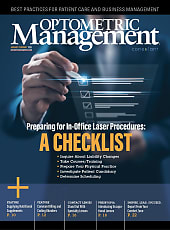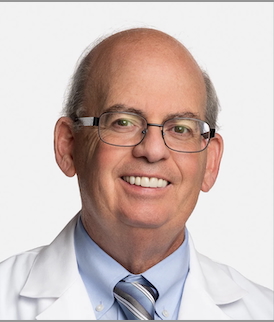Many practice modalities are available to optometrists: solo private practice, group private practice, corporate optometry (employed or independent contractor), employment with an ophthalmologist, serving in the military, and academia, among others. (See “Other Practice Settings as Examples,” below.) This article explores another—practicing optometry in a Federally Qualified Health Center (FQHC). I know what you’re thinking. "With recent Department of Government Efficiency (DOGE) initiatives,Consider this practice modality to fill a need for primary care optometristsis it worth reading this article?” Let me assure you that it is. In fact, since the DOGE changes, other federally qualified health centers have contacted me about adding optometrists.
Defining an FQHC
FQHCs are public or nonprofit clinics that provide primary care services to members of underserved communities, regardless of insurance status or ability to pay. They are located in both urban and rural areas, and they receive federal funds to operate.
To become an FQHC, the organization must meet several criteria, including:
- Having a location in or serving a high-need community.
- Being governed by a community board that is ≥51% composed of health center patients.
- Providing comprehensive health care services on a sliding fee scale, based on the patient’s ability to pay.
FQHCs offer a broad range of outpatient primary care and preventive services, and Medicare Part B (medical insurance) covers many of these services. Examples of FQHCs include community health centers (CHCs), migrant health centers, and health care for the homeless health centers.
Because of FQHCs’ emphasis on providing integrated, patient-centered care to underserved populations, these centers offer unique opportunities to improve access to eye health and vision care.
The need is great for ODs, but the supply is limited. Specifically, it is estimated that FQHCs employ only 400 full-time equivalent optometrists. This represents <1% of the 45,000 optometrists in the United States.

Where I Practice
As part of the team at Community Health Centers (CHC) of the Central Coast, I practice optometry at the CHC in Nipomo, California. We have 4 full-time optometry clinics, and each has a full-time optometrist (myself, Austin Hoy, OD, Franco J. Castrejon, OD, FAAO, and Kody Cowell, OD).
In addition, we are an externship site for several schools of optometry, and we serve as a residency site, furthering our ability to provide care to the community. It is worth noting that several of our former externs and residents now practice primary care optometry in other FQHCs.
Along with routine refractions, we provide spectacles, contact lenses, and specialty contact lenses. We also provide comprehensive eye care and routinely diagnose and treat various ocular conditions and diseases. Diabetic retinopathy and glaucoma are endemic in our patient population.
Each of the CHC clinics is multidisciplinary. Along with optometry, there is medicine, dentistry, pharmacy, on-site laboratory services, and imaging.
Advantages of FQHCs
There are many advantages of practicing at CHC or other FQHCs. In no particular order, here are several reasons why I favor practicing in an FQHC.
- Integrated EHR. We have a comprehensive, integrated EHR system. Before examining a patient, we check the EHR to assess their medical history, prior lab tests, prescribed medications and other pertinent data. This allows us to practice at a high level and prevent duplication of services.
- Laboratory services. The clinic has an on-site lab and blood draw station. This is convenient for patients and allows for a quick turn around on a myriad of lab tests, including lipid panels and thyroid panels, among others.
- On-site pharmacy. When we prescribe medication for a patient, we can send them next door to retrieve it. This greatly enhances compliance with the prescribed treatment regimen.
- A health educator. The health educator is your best defense against patient noncompliance. We can schedule an appointment with the health educator. As an example for diabetes, the health educator explains the importance of diet, medication management, how to measure blood glucose levels at home, etc. For glaucoma patients, they can instruct the patient on the proper installation of ocular medication, the reason for continual monitoring of intraocular pressure, and routine visual fields to prevent further visual loss.
- Referrals. There are many specialties at the clinic, including pediatrics, dental, and chiropractic care, allowing for a smooth transfer of patients to the appropriate health care provider.
Determining Whether It’s for You
If you answer “yes” to a majority of these questions, it’s worth looking into practicing at an FQHC:
- Do you enjoy working as a member of a health care team?
- Do you enjoy primary care optometry?
- Do you enjoy being able to prescribe medication, order lab tests, and imaging?
- Do you enjoy collaborating with other physicians?
- Would you enjoy having access to an integrated electronic health record?
- Do you believe that access to health care is a basic human right, regardless of ability to pay?
How to Proceed
If you believe that practicing primary care optometry in a FQHC may be right for you, conduct an online search for CHCs in your area and determine whether they offer optometric services. If not, I encourage you to try to meet with the CHC’s chief executive officer or the chief operating officer to explain the need for primary care optometry services in your community.
Additionally, explain that optometry care is medical care, in terms of our ability to detect and treat various ocular conditions.
Finally, provide education on how offering optometric services can be profitable for the organization. (See “Optometric Action Plan: Optometry Students,” below.)
I find practicing at a FQHC very gratifying, you are a valuable member of the health care team, you are able to provide comprehensive eye care and the patients are grateful for the services rendered. OM
Optometric Action Plan: Optometry Students
- Select an externship in a CHC. Not only will you receive a great learning experience, but you can also decide whether public health optometry is right for you.
- Encourage your optometry school to form externships with Community Health Centers.
- Consider a residency in a Community Health Center. You will obtain a deeper understanding of how a CHC operates. Remember that residencies are paid positions. Learn and earn!




